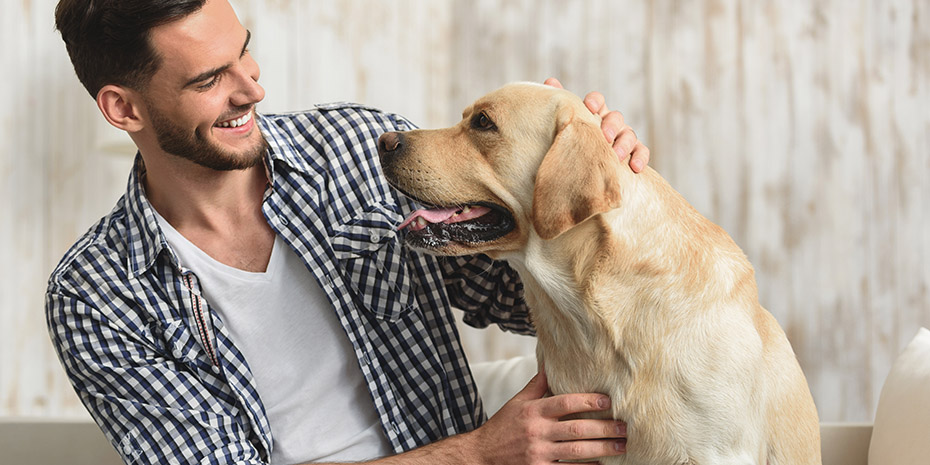Last month, we looked at the changes in pet parent relationships with dogs due to the pandemic and how codependency has made separation difficult for people and their dogs. You can check out this post here:
https://www.campbowwow.com/blogs/2021/march/how-to-avoid-codependency-for-a-happy-healthy-re/
This month, we wanted to share additional details on easing the effects of codependency and the separation stress it can cause both you and your pup.
Practice Separation
Some dogs may have stress being separated when you leave the home, and others can have stress when isolated from you while you are home, for example, being in another room, behind a gate, or in a crate. These are two different problems, but both have become more common to see after this past year of being homebound.
While you’re at home, practice short periods of separation where your pup can see and hear you, but cannot get to you. This may be while you complete a task such as folding laundry, starting dinner, or sweeping the floor.
Keep this type of separation short to start
Make sure your dog’s basic needs have been met first
Rejoin your pup when he’s calm and quiet
You’ll also want to practice separation when you need to leave the house.
This could be leaving in the car for a short errand or a brief walk around the block
Leave through different doors and don’t follow the same routine of getting ready to go each time
When returning home, enter neutrally and don’t emphasize your greeting
Instead, channel your dog’s excitement into a quick game of fetch or a few tricks that you can reward
Practicing separation when you’re able to keep it brief can also help a pet parent become more comfortable leaving for longer periods of time as their dog becomes used to the separation.
Exercise before Separation
A dog who has been well-exercised before you leave the house is less likely to experience as much stress when you leave, and (bonus!) often this exercise helps alleviate guilt pet parents may experience when leaving their dog alone. Use different forms of exercise that your dog enjoys such as a walk, game of fetch or tug, training session, or scavenger hunt.
Provide Mental Stimulation
Set up your dog with a long-lasting frozen treat, puzzle toy, or bone, or hide several treats around the house for your dog to find while you are gone. Allow your dog to start enjoying their treat/puzzle before you leave so that your dog is occupied when you do make an exit. A dog who is occupied when leaving can help minimize a pet parent’s worry if they watch their dog’s face as they leave.
Take a Training Class
Dogs who continue learning throughout their life are better at problem-solving, staying mentally agile, and better equipped to adapt and cope with change. Training gives you and your dog a great way to communicate, bond, and helps tire a dog out mentally!
Check out our training blog post for more information on ways to incorporate training into your daily routine: https://www.campbowwow.com/blogs/2021/january/national-train-your-dog-month/
Peace of Mind
Some pet parents may feel they need to watch their pup at all times. There are several cameras available that allow someone to view their pets at home such as PetCube or even a general security camera may do the trick, depending on the features you want.
You may also consider hiring a pet-sitter or dog-walker to provide exercise and attention to your dog during the day if you are gone for a while or are concerned about the time spent alone. Make sure you fully vet the sitter you choose and that the sitter is bonded and insured.
Lastly, if your pup loves to play with other dogs and you still worry about him being alone, check out a safe, well-established doggie day care like Camp Bow Wow® where dogs can interact with their furry friends while under the supervision of trained Camp Counselors all day long. You can even check in on them whenever you’d like through their camera system.

